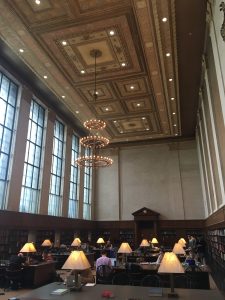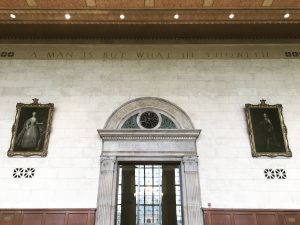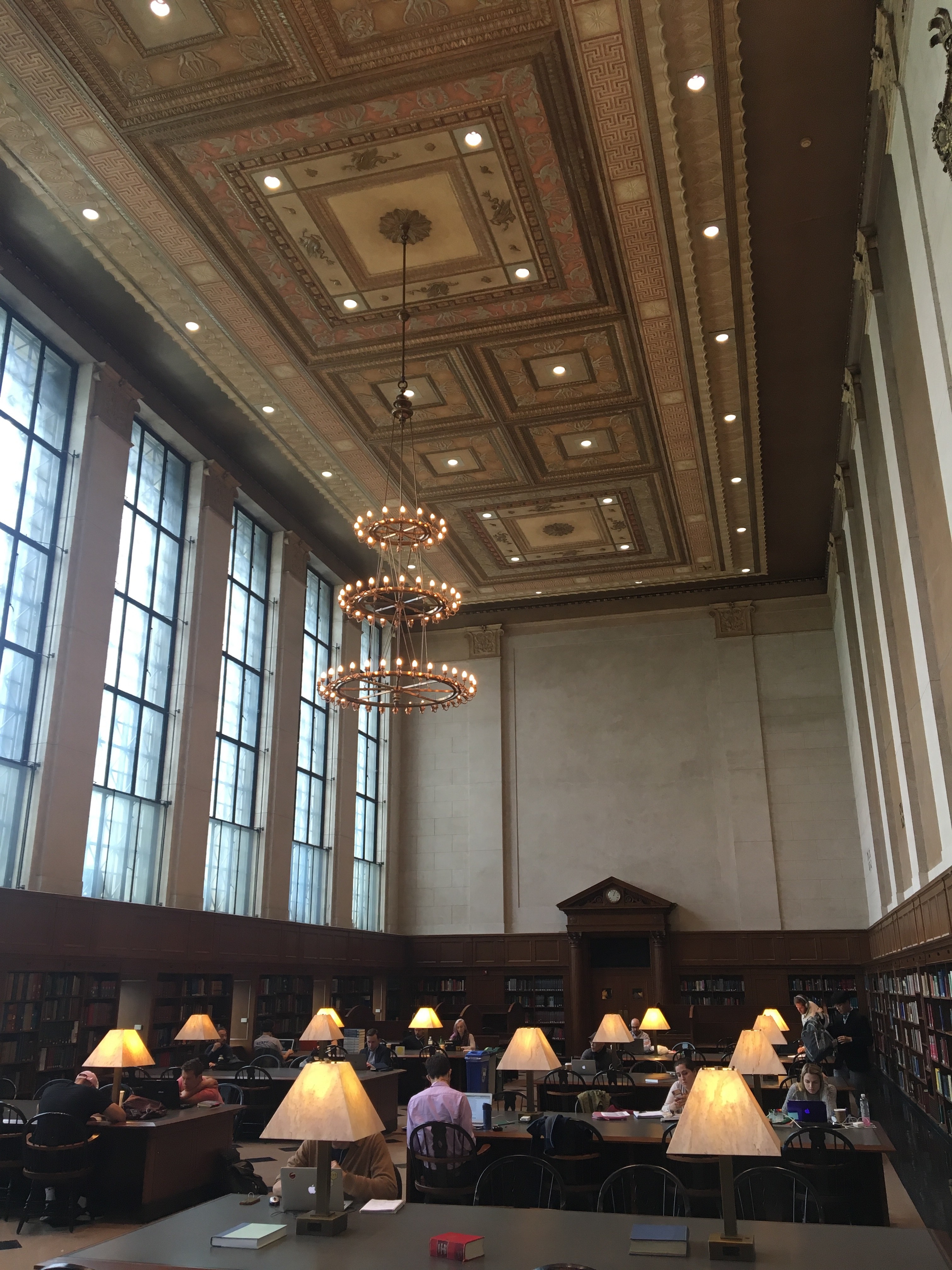
As I was talking with a professor a few months back about my grad school workload, she referred to Malcolm Gladwell’s definition of an expert as someone who has practiced a set of skills for 10,000 hours. While that definition has been widely critiqued for its simplicity, I took the professor’s point as she meant it, in the general sense that the only path to expertise is the dedication of enormous time and effort.
This past year has reminded me how elusive expertise is even when one has the privilege of being entirely devoted to its pursuit. At Columbia, I had the luxury, the duty, and the burden of spending 50-70 hours reading and writing every week without any other responsibilities to distract me. Such intensive study is nearly impossible for people with more conventional day jobs.
Now that I’ve decided against going back to grad school, I’m left wondering what my relationship will be with a discipline that has been at the center of my life for the last six years. There are, of course, no shortage of jobs in related fields that would allow me to continue practicing history without the intensity of an academic career. But if I have to choose between the two main responsibilities of a historian—the craft of history and serving students—I would almost always choose the latter. That was always my main motivation for exploring an academic career, after all. I enjoy history, but it doesn’t energize me in the same way as teaching and mentoring.
That doesn’t mean, however, that I want to walk away from history entirely. Even when I got to the point last year where my eyes would glaze over as soon as I pulled out the required reading for my next class (not a good sign for someone considering a PhD), the idea of pursuing knowledge and expertise never ceased to tempt me. Meandering through the library stacks, I wanted to consume the centuries of knowledge contained in the millions of books around me.
In lieu of the conditions necessary to develop true expertise, I’m left wondering what I can do to maintain a basic sense of engagement with history once I’m out of the field. For the first time in years, I’m no longer learning to think like a historian; instead, I’m thinking of how to learn like a non-historian.
I don’t just want to be a “history buff.” I want to continue thinking deeply about the interconnectedness and reverberations of the past. I suppose this preoccupation taps into a broader question about what it means to continue improving myself through learning beyond my chosen profession—and how to live up to the liberal arts mentality that Gettysburg instilled in me.

There’s no shortage of models. Businesspeople donate their time and money to foundations to feel closer to their passion for history. Lawyers and journalists write history books on the side or after they retire. Thousands of Americans are drawn to historical sites and museums every year. Others read and watch documentaries.
All those ideas give me a great starting place, but I want to find the means of engagement that’s best for me. I’m not expecting a large income and I’m dubious I’ll want to spend my free time writing lengthy works of history without the benefit of further training. I’m confident I’ll continue visiting historical sites and museums—but does anyone else wish they remembered more from their visits than they do?
For me, reading will be at the center of any continuing engagement with history. When I first graduated from college, I tried to design personal courses of study by reading a number of related books at once. Without class discussions, however, I didn’t synthesize the content as I would have liked. That’s one of the benefits of this blog—it provides a platform to encourage stringing together ideas about history and forcing me to make them coherent. So that’s a starting point.
I suppose my biggest question involves the type of reading non-academics should do to stay abreast of the discipline. Is there value in reading highly theorized academic history? It’s tough reading—is it worth it intellectually if you’re not able to fully dig into it? What about expensive monographs or articles on niche questions of interest? Or, should we think of ourselves as generalists rather than specialists and read mostly major works and pop history?
In reality, I’m so backlogged on reading that it will take me a while to get into any new books anyway. I think I might eventually pick from lists of Bancroft and Pulitzer Prize winners to ensure a steady stream of quality reading. After all, mastery may be out of reach, but that doesn’t stop me from enjoying the fruits of others’ labor.
